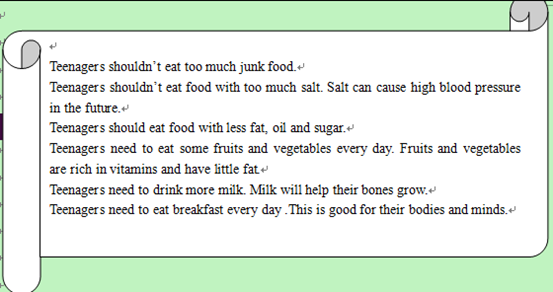题目内容
There are about 80,000,000 mines* under the ground in more . than 60 countries. It is difficult and dangerous to clear these rnines, About 50 people including many children were’ killed ‘or htirt each iay. In 2003, APOPO, a Dutch research com pan y that uains the an imals, came up with the-idea of s\ng rats to search for the mines.
The animal trainers ‘found that a kind of rats from Africa were clever and had.a sharp* sense of smell. The rats were about 75 cm long and.weighed about l.35 kg, light enough to run across a minefield without setting off the mines.
In January 2004, the APOPO started this project. First, the trainers let the 4-week-old baby rats get familiar with humans. A few weeks later, the rats were no Ionger afraid of people and ‘the things around them. Then they were trained to connect a click* sound with food. After the rats had leamed that, the trainers then taught them to tell the difference between the smell of mines and other smells. When the rats could do it, the click was sounded and they were given a bit of banana. The method was called clicker training. “The training isn’t easy, said trainer Abdullah Mchomvu. “You have to be patient. Sometimes I get angry, but then again, I tell myself these are animals.”
After nine months’training, the rats were taken to a minefield. They’ran across the minefield, stopped, sat and scratched the ground to tell the deminers* that they smelt out’a mine. Then the mine was cleared. It had taken two ‘deminers a day to clear a 200㎡ . minefield, but with the help of two rats ‘they could finish it in two hours.
The rats and the deminers saved thousands of lives, “The rats did this job much better than we expected. So far they have helped to make almost 2,000,000㎡ of land safe. They are heroes,” said Bart Weeqens, the head of the APOPO.
小题1: The APOPO trained the rats to search for .
小题2: While training the rats, the trainers have to be
小题3: How long did the training last?
小题4:Which of the following is NOT TRUE according to the passage?
The animal trainers ‘found that a kind of rats from Africa were clever and had.a sharp* sense of smell. The rats were about 75 cm long and.weighed about l.35 kg, light enough to run across a minefield without setting off the mines.
In January 2004, the APOPO started this project. First, the trainers let the 4-week-old baby rats get familiar with humans. A few weeks later, the rats were no Ionger afraid of people and ‘the things around them. Then they were trained to connect a click* sound with food. After the rats had leamed that, the trainers then taught them to tell the difference between the smell of mines and other smells. When the rats could do it, the click was sounded and they were given a bit of banana. The method was called clicker training. “The training isn’t easy, said trainer Abdullah Mchomvu. “You have to be patient. Sometimes I get angry, but then again, I tell myself these are animals.”
After nine months’training, the rats were taken to a minefield. They’ran across the minefield, stopped, sat and scratched the ground to tell the deminers* that they smelt out’a mine. Then the mine was cleared. It had taken two ‘deminers a day to clear a 200㎡ . minefield, but with the help of two rats ‘they could finish it in two hours.
The rats and the deminers saved thousands of lives, “The rats did this job much better than we expected. So far they have helped to make almost 2,000,000㎡ of land safe. They are heroes,” said Bart Weeqens, the head of the APOPO.
小题1: The APOPO trained the rats to search for .
| A.children | B.animals | C.mines | D.bananas |
| A.patient | B.clever | C.brave | D.serious |
| A.Two hours. | B.One day. | C.Four weeks. | D.Nine months. |
| A.Each day about 200 people were killed or hurt by mines, |
| B.The APOPO started to train the rats in January 2004. |
| C.The trainers gave the rats food after they smelt out a mine. |
| D.The rats and the deminers saved thousands of lives. |
小题1:C
小题2:A
小题3:D
小题4:A
文章主要讲的是训练老鼠来进行地下矿井的开采。
1. C 根据第一段最后一句to search for the mines可知训练老鼠是用来研究矿井的,故选C。
2. A 细节题的考查,“The training isn’t easy, said trainer Abdullah Mchomvu. “You have to be patient可知选A。
3. D 答案来自第四段的第一句:After nine months’ training可知有9个月的时间,选D。
4. A 纵观全文,A答案文章并没有提到,故选A。

练习册系列答案
相关题目
 do much listening.Don’t be 32 of making mistakes.But be careful not to let them stop you from improving your 33 .While you are doing this,a good 34 is to write-keep a diary,write notes or letters.Then if you can,ask some others to go through 35 you have written and tell you where it is wrong.Many mistakes in your speaking will be 36 found when you write.Through correcting mistakes,you can do better in learning English.
do much listening.Don’t be 32 of making mistakes.But be careful not to let them stop you from improving your 33 .While you are doing this,a good 34 is to write-keep a diary,write notes or letters.Then if you can,ask some others to go through 35 you have written and tell you where it is wrong.Many mistakes in your speaking will be 36 found when you write.Through correcting mistakes,you can do better in learning English.